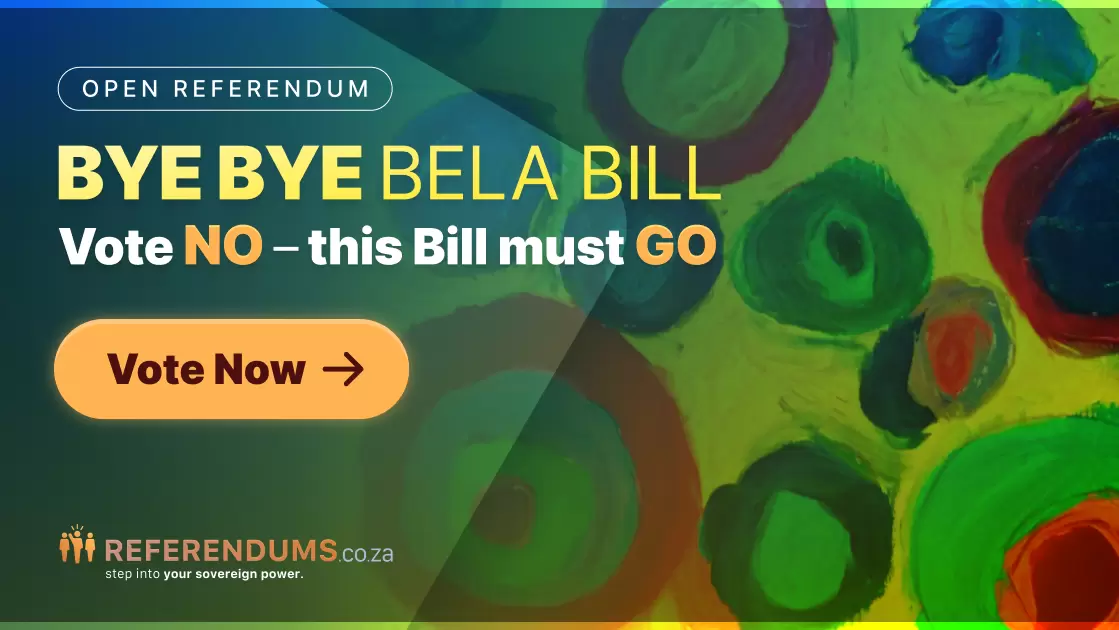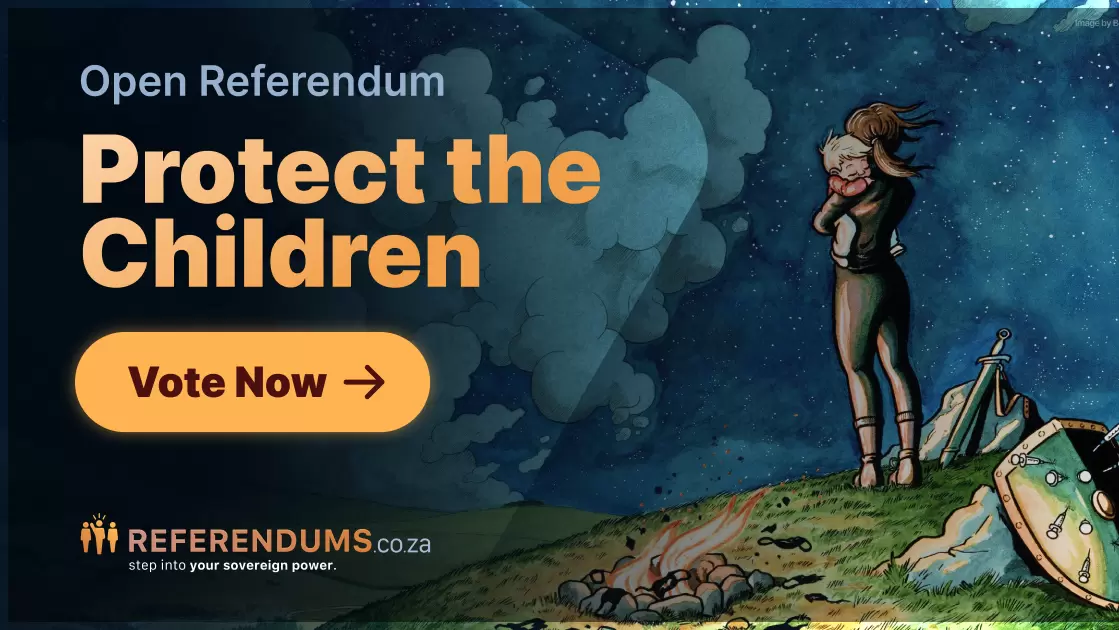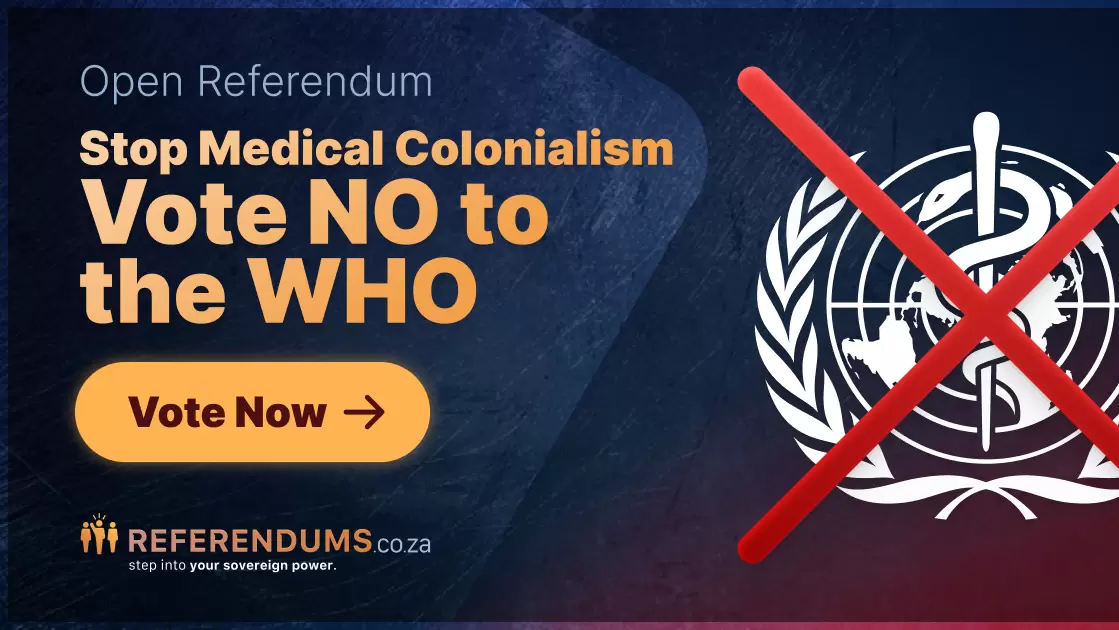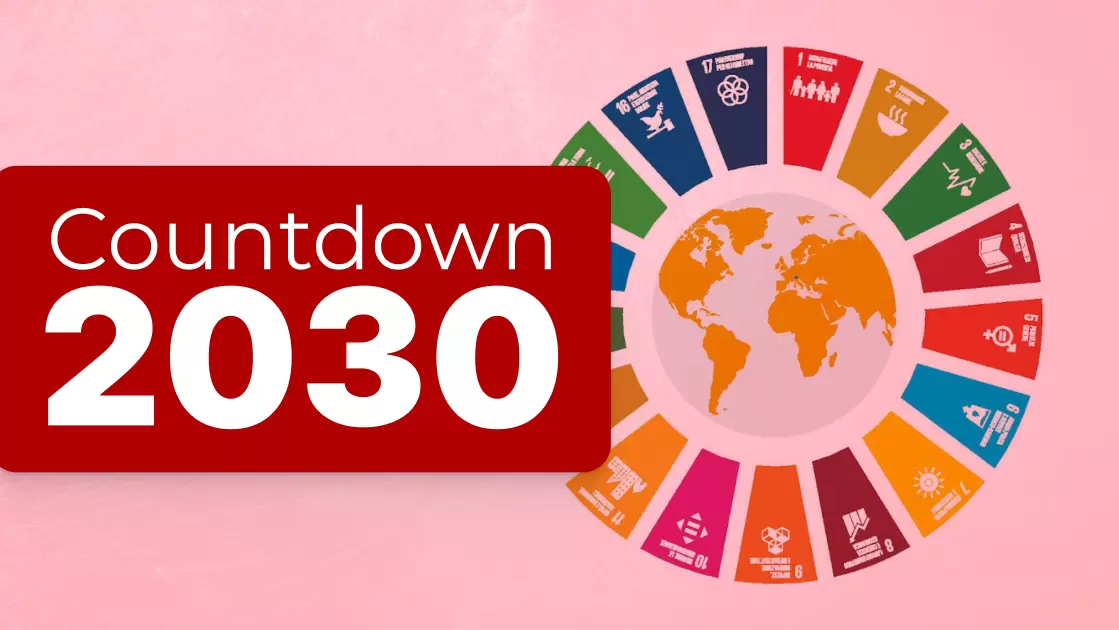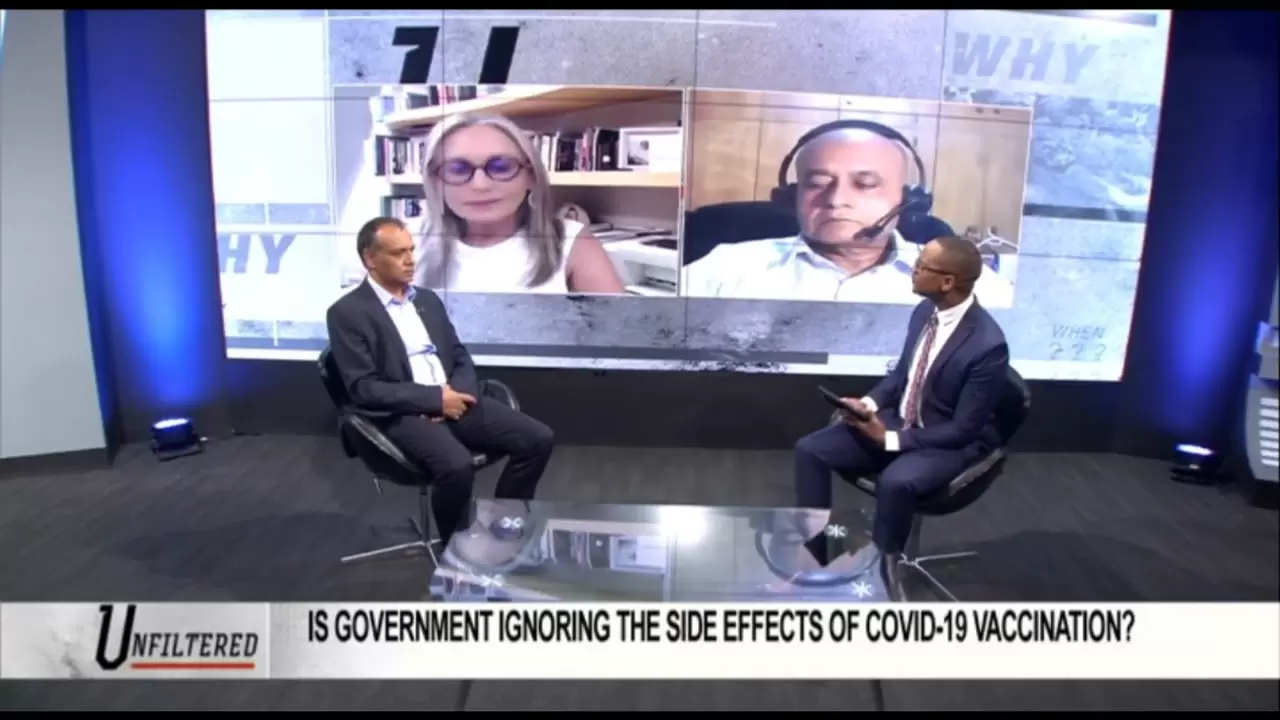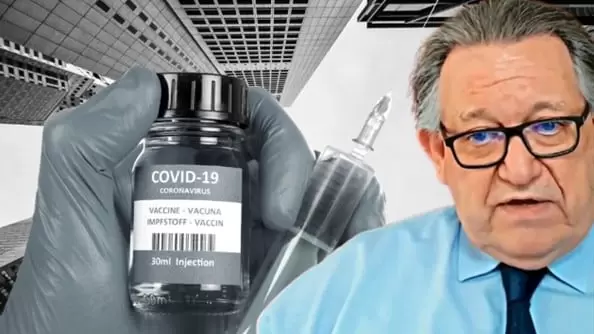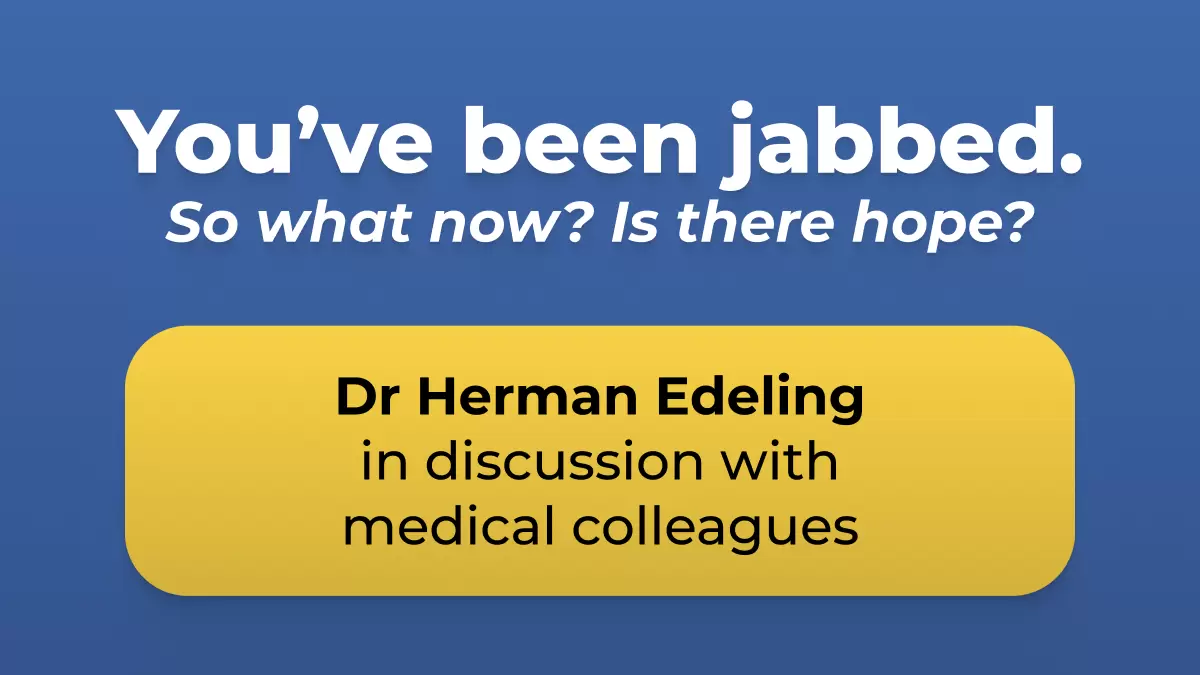Why do South Africans not have referendums?
From the Desk of “B”
It’s estimated that more than half of all worldwide referendums take place in Switzerland.
The Swiss vote at least four times per year, giving their opinion on issues that in other countries are typically reserved for parliamentarians to decide on. When it comes to important laws, the people of Switzerland always have the last word — and if they gather enough signatures, they can themselves initiate changes to laws and the constitution.
For some, it may seem like referendum overdose, but for the Swiss it is the democratic system they are used to. As a South African, one can only but marvel at such a concept!
But, what is a referendum anyway?
A referendum is defined as a general vote by a specific electorate over a specific political question which has been referred to them for a direct decision.
So, a referendum basically allows the people to decide on an issue, not the government.
The decision may take the form of a ballot question, a private survey, or a poll. The results of the vote are then implemented by majority vote.
The priorities of the politicians may differ from the priorities of the people. If any ruling body, such as the government, is unsure of which direction to go, they can use a referendum to seek a mandate from the people to know how to proceed.
A referendum is a mirror of public opinion — by offering a referendum, the government is able to glean information about what their voters want, making it easier to create policies or procedures which reflect the majority’s will.
Citizens of a democratic country are supposed to be able to request a referendum and go to the polls to show their support, or opposition to, any matter that they consider urgent or important.
Democratic countries all over the world hold referendums, from Ghana to Ireland, from Brazil to New Zealand.
It stands to reason then, that we should have the option of a referendum in South Africa too.
Have we ever had a referendum in South Africa?
The vast majority of South Africans have never voted in a referendum. This is because the last referendum we had was held 30 years ago, in March 1992. This was two years before the first democratic election held on 27 April 1994, which meant only white people were permitted to vote in that referendum. At the time, that meant 2.3 million of the overall population of 38.7 million – roughly 6%.
Bearing in mind that only those 18 years and older were eligible to vote, it means the youngest voters in 1992 would now be 48 years old. Thus, of our total current population, not a single person under the age of 48 has voted in a referendum. And no black, coloured, Khoisan or Indian South African of any age has ever had the opportunity to do so.
No wonder there’s hardly anyone who has experienced the power of a referendum! The power that comes with the principle of sovereignty, given shape in direct legislation. The power to directly sway government.
So, most South Africans are unaware that we are being denied this opportunity they feel unhappy with the current status quo don’t now what it is, and didn’t know we don’t have one.
A referendum gives direct democratic control to the people.
If there is a difficult decision to make, then a referendum can solidify support for it. When a majority of the People back a political decision, it helps to make it easier to proceed.
The referendum mentioned, held on 17 March 1992, was in fact the third one held in South Africa. It sought to establish whether or not voters supported the negotiated reforms begun by State President F. W. de Klerk two years earlier, in which he proposed to end the apartheid system that had been implemented since 1948 and clear a path for a shared transfer of power.
It was a crucial referendum. While the aim of the referendum was to measure White support for the process to negotiate the dismantling of apartheid, it was considered a particularly thorny issue at the time.
The referendum was a gamble for both De Klerk and the National Party, as he had agreed to resign should the result be ‘no’. Ultimately, the result of the election was a large victory for the ‘yes’ side – almost 70%, considering voter turnout was 85%. As we know, this meant the lifting of apartheid legislation and universal suffrage was introduced two years later.
So, perhaps it’s not entirely correct that hardly anyone in South Africa has experienced the power of a referendum. Though very few got to vote, the consequence of that referendum had massive implications for all South Africans.
To be thorough, let’s take a quick look at the other two referendums that have taken place in this country as well. In October 1960, South Africa’s first referendum was held, in order to establish support for severing ties to the British Crown and becoming a republic. The topic was hotly contested, voter turnout was very high at 90% and the result was close, with a vote for a republic at 53%.
The second referendum was held in November 1983 to gauge opinion on the new constitution. The 66% “yes” vote resulted in the tricameral parliament system; and also a change from a prime minister, to voting in a state president with far greater powers instead.
What is interesting to note, is that all three of the referendums were announced at times when it was essential to prove that the majority of the voters were in support of a proposed action. One could say they were called at pinch points in our history when the government sought a mandate from the People.
So why is it that we have had no referendums in 30 years? Do we have a particularly politically stable society? Have all our presidents been squeaky clean, morally upstanding citizens with nothing to hide (under their beds or elsewhere)? Do the people agree with how the government handled the COVID-19 crisis?
Is the answer “no” to all of the above?
If so, then why – when a referendum really is the best litmus test any government has to gauge whether their electorate supports their decisions – is this? Could it be because in a representative democracy, the majority party rules arbitrarily and makes the laws for its own ends, as has sometimes been suggested? After all, it has the majority support in the legislature, thus the will of the People does not take practical shape and so, might go unheeded. Perhaps because the representatives of the people are under the influence of party politics, the corporate media and certain other things, like, say, bribes.
Instead, through direct legislation – when final approval of the laws is sought from the people – the majority party cannot make laws arbitrarily because the minority party can rouse the public opinion. You see, even the most sophisticated system of proportional election cannot guarantee that the opinions of the members of parliament are a true representation of people’s opinions in any possible political question. So, in a parliamentary debate, some arguments might get lost or not be taken seriously enough, while this is not the case in a referendum campaign.
In July 1992, then-president FW de Klerk, signed the Referendums Amendment Act 97 which amended the Referendums Act of 1983 so as to extend the definition of ‘voter’ to include all South Africans 18 years and older, and regulate certain aspects of the referendum procedure.
So, although, referendums are enshrined in the South African Constitution, and the mechanism exists to hold a fair referendum, the ANC government have never enacted the legislation to provide for this.
A definite advantage, if our government where to include referendums as a tool, is that it gives direct democratic control to the people. By gaining law-making power in our hands, we, the People become conscious about the problems of our country. Perhaps this is exactly what the ANC government does not want?
If you proclaim to be a government of the people, why reject a system that “accelerates the political education of the individual voters and grants real protection against the revolution by introducing leadership”, as the former president of the Swiss National Council, Felix Bonjour, so aptly described it. Tut, tut.
In fact, Switzerland has a long tradition of referendums.
Click here to read about the Swiss referendum system and how it works →
There are some who believe that since the turnout at referendums is lower than at national elections (which is true in many countries), the argument that referendums increase the legitimacy of political decisions does not stand up.
However, experts in Switzerland (where citizens vote two to four times a year at national level and even more at local level) believe that, although turnout is around 50%, more than 80% of the electorate participate in direct democracy, since different voters participate in the different votes that interest them.
80% is a lot higher than typical voter turnout.
Certainly, if you consider the voter turnout in our last South African local election was in the region of 30% – a record low!
One could argue then, that in the context of increasing voter apathy and disenchantment with traditional forms of democracy, direct democracy in the form of a referendum can help to re-engage voters with politics and democracy. That could work in South Africa’s favour, right?
We’ve certainly seen an upswing in public participation, if we consider the 300,000 plus comments regarding the Amendments to the Health Act in April 2022 and the local uproar about the WHOs International Health Regulations in May 2022.
There is definitely increased public interest in exactly what the government is up to.
South Africans are watching the government closely when it comes to forced COVID-19 “vaccinations” and mandates in business. We are awake as we see the DA rolling out vaccination stations in schools across the Cape. We notice when loan agreements of R7.6‑billion are made with the World Bank to “finance our COVID vaccination programme” and we know that the People will not receive the benefit — only the burden of the payback.
Let’s give our government the benefit of the doubt and assume that their objection to the use of referendums is that it weakens representative democracy by undermining (heaven forbid, hey, Minister Cele?) the role and importance of elected representatives. Well, this assumption is actually incorrect, because not every law is put to referendum – only controversial laws. And the legislature, knowing that the Bills can be sent for referendum, draws up the Bills carefully — there is then no need for a referendum with such carefully considered Bills. Besides, if it comes to that, the system in Switzerland allows for urgent laws not to be subjected to a referendum.
So, perhaps the reason the ANC has not pursued the previous practice of holding a referendum, is because it believes voters do not have the capacity or information to make informed decisions. Frankly, that is demeaning and underestimates the people who have voted them into power.
Long experience in countries such as Switzerland, tells us that the laws which have the public support are more moral. It makes sense that such a law receives greater weight and strength because of the approval of the people. As a result the public feel it their duty to obey and get it obeyed.
According to Curt, the great Swiss authority on the subject “referendums prevented but little good that we wished to do, but singly by standing as a warning before us averted much evil. In spite of backward movements, it did not condemn democracy to a halt but has given steadiness to progress itself.”
When there is a referendum on laws, the question of bad laws does not arise. “Referendum is a guarantee against all those laws which are against the popular feelings, because people give their final verdict on the laws passed by the legislature” Curt states.
There are many more arguments for and against the inclusion of referendums in the governance of a country, but the bottom line seems to be that there is greater moral support behind the laws supported by the public. While we are not specifically advocating following a Swiss system in a country as large and diverse as South Africa, we don’t agree that there is currently no option for a referendum in our country.
We have seen how, in the period between 1948 and 1994, three referendums were held when it was critical for the government to demonstrate in the most practical way that it was following the majority’s wish – that they had, in other words, received a mandate from the People.
Sure, these referendums created divisions within communities, a point that opponents of referendums often raise. The first referendum held in 1960, where there was a narrow victory, stoked tension between English speaking and Afrikaans speaking South Africans. These divisions took time to heal, but they have, because in the end, it was the right thing to have done.
In a speech made at the time, following the announcement of a clean break with our colonial past, then-President Verwoerd said “I appeal to the English-speaking people of South Africa not to allow themselves to be hurt, though I can feel their sadness. A framework has fallen away, but what is of greater importance is friendship and getting together as one nation. Now there is a chance of standing together – one free country standing together on a basis which is the desire of friendship with Great Britain.” Hate him or not, Verwoerd was right to acknowledge how divisive that referendum had been, and to encourage unity.
Speaking of Britain, perhaps a final consideration is to have a look at their Petition system, as a petition can be considered in some ways to act similarly to a referendum, and it is, of course, a form of participative governance as well.
Petitions have a long history in Britain. For over a thousand years they have been a tool for citizens to try to address their grievances to the monarch or to the government. In 1689 the right to petition the King was even enshrined in the Bill of Rights.
Click here to read about the British Petition System →
The jury is still out in terms of just how much sway these petitions hold – but that, surely, points to the political will of the government. So, while they may have a limited direct impact on policy, it does not mean petitions are unimportant. Often, petitions that are well-supported help to create wider social and political debate and thus have a significant indirect impact. And again, it encourages active citizenry through direct democratic participation, and provides for a better educated, politically more astute – and dare we say, less lazy – civil society.
To some extent, we have seen the impact of petitions, comments and public participation lately, with pressure placed on the government around the Amendments to the Health Act and the COVID-19 emergency measures. The fact remains however, that South Africans have no legally binding mechanism to use in order to hold our government to account. When the government doesn’t stand up for the people or if we want to replace the government — that’s when we should be able to call for a referendum. We need referendums so that we can put issues to a direct vote rather than go through elected government representatives.
Interesting to note, is that in June 2022 former deputy Finance Minister, Mcebisi Jonas, in a speech made at the Defend our Democracy campaign in Boksburg, urged that South Africans should be granted the opportunity to vote in a national referendum. He was speaking to a need for electoral reform with specific reference to changing the constitution to allow for a president to be directly elected.
Nevertheless, perhaps it is an indication that things are shifting in such a way that referendums will become an option once more. Perhaps we are moving away from a place where the majority of South Africans believe in and legitimise the role of the government without questioning our own sovereignty. It is certainly clear that we can no longer simply abdicate responsibility to the government without being very clear on what is really happening behind the scenes. We must become more involved in our own governance.
A referendum allows for a campaign to be started for each side of the question proposed. In this very same speech, Jonas highlights:
[the referendum] should be preceded by a mass education and mobilisation campaign focusing on the importance of [the question at hand].
A word of caution, especially in this time of intensive fake news and false information. Campaigns provide space for false actors to misrepresent positions to the general public. Because the goal of a referendum is to provide more information to everyone, the false information offered is often believed – Brexit would be a very good example of this. We, as the public, should be aware and remain vigilant.
In conclusion, until such time that our government does offer South Africans the opportunity to hold a referendum, we have created, on the red list, our own platform for various referendums on topics that we feel have been entirely ignored.
We, the People, are not being informed and we don’t have a say in what happens next.
Voters in the referendums will have the opportunity to show their support or opposition to various topics. We do ask for ID numbers in order that the votes can be verified (always in situ, with no data transfer taking place) and can be used in court and by civil rights groups and activists. No personal information collected will be shared with a third party, ever.
Going forward, we will offer the option for voters to create voluntary associations where information can be shared, and campaigns can be created.
It is time for South Africans to step into their power. Amandla Ngawethu!
The Red List. Let us be your voice.
